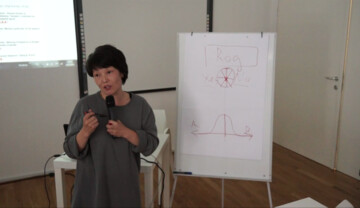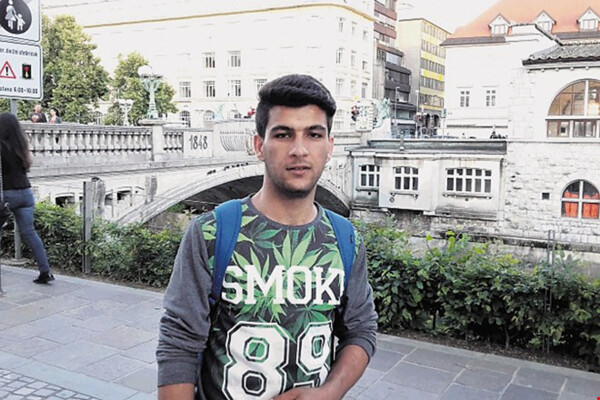
Figure 1: Andraž Rožman, “Hasan Hasan iz Kurdistana: Sanjam o nastopu na olimpijskih igrah” (“Hasan Hasan from Kurdistan: I dream of taking part in the Olympic Games”), Dnevnik, 28 June 2016. Photo: Andraž Rožman.
My presentation of the Autonomous Factory Rog just after its defence against the violent attack and attempt of eviction (6th of June 2016) from the side of city governmental authorities appeared to be emotional, subjective and human. I showed a picture of my friend, Hasan Hasan, activist and asylum seeker, who has worked with us on the Balkan route, the Balkan corridor, freedom of movement and right to stay issues at Social Centre Rog, one of many collective spaces in the autonomous zone. (Figure 1) His picture was published along with his story in a national newspaper article titled “Hasan Hasan from Kurdistan: I dream of taking part in the Olympic Games”[1]. Although Hasan has lived nearly six years in different European countries, where all his applications for international protection (under a convention relating to the status of refugees) had been rejected, in the article he expressed the hope of realising his dreams that were not merely bound to the case of his legal status, have a roof overhead or even → basic income. In contempt of existing laws, strict asylum policies and exclusive border regimes, Hasan indicated the very possibility of being more than a subordinated subject of transcendental power, revealed a chance to grasp the common and tried to capture the intangible.
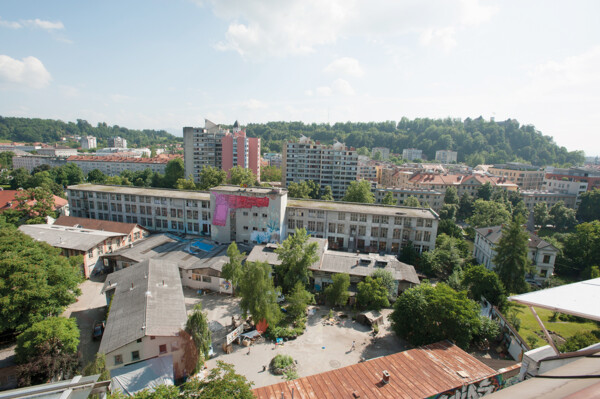
Figure 2: Autonomous Factory Rog, bird’s-eye view. Photo: Franci Iskra.
Factory Rog, occupied since 2006, is a place of encounter for those excluded from wealth but included in its production,[2] and of those who live various practices of citizenship and challenge the formal limitations of European citizenship.[3] (Figure 2) The republic of Rog is opposing the republic of property by producing alternative modes of production of art, languages, affects, social life and knowledge, and thus becoming one of the forms of the common that increases our powers to think and act together.[4]
The occupation of Rog more than a decade ago was also an act of a generational experience. “It started as a practical attempt to break away from the conceptual, practical and political hegemony of the generation that was in power since 1980s.”[5] Such a particular experience of production of subjectivity was crucial to understanding how the republic of property under the socialist state went through the transition and became the power of property of the current neoliberal policies that encourage public authorities to merge with private investments. Abandoned for more than 15 years, Factory Rog became the target of public-private partnership and local authorities launched a hunt for private capital.
From the perspective of the common Rog is going through the experience of standing against the notion that the only alternative to the private is the public. The summer of resistance (2016) and defence of Rog, hopefully, contributed slightly to the recognition of the common as a new space for politics, beyond the concepts of public → interest and public property rooted in the tradition of transcendental power, i.e. the power of law and capital.
Failure of sovereign power and the act of transcendental power
The use of violence during the attempted evictions at Rog led to strong resistance, → solidarity [→ solidarity, → solidarity], and support. The sovereign power of the Mayor of Ljubljana, a figure of command, whose threatening statements enabled violence accomplished by a private security contractor also caused a reaction from the representatives of the transcendental power. A short visit of an inspector related to the issue of abusing power by the private security company, which entered the territory of the occupied factory at night and violently tried to evict people by beating them up and blocking the entrance and exit points of the area. An emergency of the still existing threat of violent eviction and of the substantial threat of irreparable damage or injury led to a decision to file for a preliminary injunction (court order), which was immediately (on the fourth day of barricades and defence) granted by the court.[6] From this point on, the strategy of battle changed greatly, but not deliberately. Rog is not fighting anymore a violent sovereign that can do all it pleases, but it just stepped onto the terrain of power, as Hardt and Negri explains, embedded with and supported by the legal system and institutions of governance, a republican form characterised not only by the rule of law but also equally by the rule of property. Put differently, the political is not an autonomous domain, but one completely immersed in economic and legal structures.[7]
Possession versus ownership
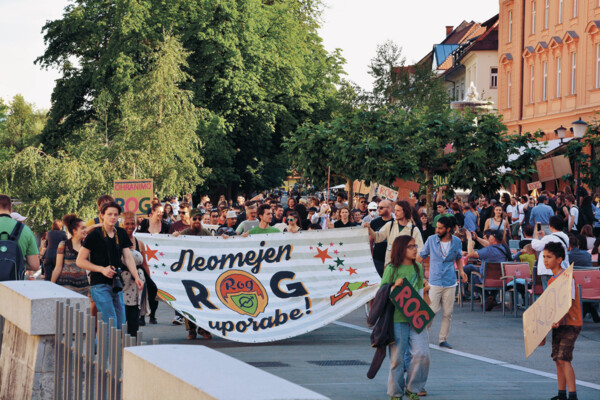
Figure 3: Protest agains the eviction of Rog users in April 2016. The slogan Neomejen Rog uporabe (Unlimited Date of Expiery)[8] addressed the legal procedures and the question of the ownership of property. Photo: Rio, an active member of Rog community and user of its facilities.
A preliminary injunction is a court order made in the early stages of a lawsuit or petition which prohibits the parties from doing anything in order to preserve the status quo until a pending ruling or outcome.[9] Since the sovereign power failed with the attempted violent eviction, the transcendental power of the republic of property took the stage to play a role. De jure and in a short time (prescribed by law) the preliminary injunction was followed by the right of possession lawsuit from the side of the Autonomous Rog, and in response the city filed a property ownership right lawsuit against Rog. The municipality of Ljubljana is suing Rog for one million six hundred thousand euros (1,600,000 EUR). It is the value of city’s property right lawsuit. Almost every lawyer is convinced (as affirmed by practice) that the protection of the ownership of property stands higher than the right of possession of a property (to have in order to have or to have in order to use). In other words, local authorities are trying to convince the public that their perspective is representing the entire society, a sort of claim of universality; in reality, as we have already seen many times in the district courts, power exists based on an exclusive identity, the unity, and homogeneity of which is guaranteed by the ownership of property[10]. (Figure 3)
From resistance to the proposition of alternatives
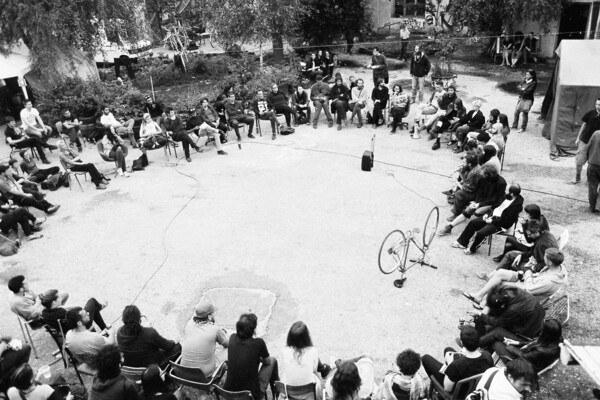
Figure 4: Plenary meeting of Rog users, 2016. Photo: Urška Savič, an active member of Rog community and user of its facilities.
From 2006 to 2017, it has been eleven years of building something that we would eventually call a desire towards the common. From the perspective of the common, the prolonged experience of Rog is a strong practice that includes (or included) both acts of resistance and bottomless attempts to build alternatives over and beyond the dialectical opposition of modernity and anti-modernity, property and possession, public and private. Although the red line of the defence of Rog was a demand to keep the space autonomous, it was not just a will to leave the things as they are; in the call for support launched before the attempted demolition Rog stated that they did not fight for preservation of the current state of affairs, but for the future of autonomous development.[11] The city authorities claim that their plan for the renovation of Rog is in accordance with the public → interest, simultaneously Rog presents the argument that after ten years of working in precarious conditions, regenerating the area with cultural activities and producing content in the public/urban interest, they have a legitimate right to use and manage a property which is not legally theirs. The existing activities and horizontal mode of organisation carry greater potential for further development than the municipal proposal with a rigid organisational structure and commercial orientation.[12] The Autonomous Factory Rog advocates a different type of public interest, kind of a “living” public interest that is not managed top-down by public powers, but emerges as a necessity not only to create and develop autonomous practices of production and living inside the walls, but also to dare to think of a struggle that will not be faced with an alternative – either insurrection or institutional struggle, either passive or active revolution. Instead, revolution must simultaneously be both insurrection and institution, structural and superstructural transformation[13]. (Figure 4)





